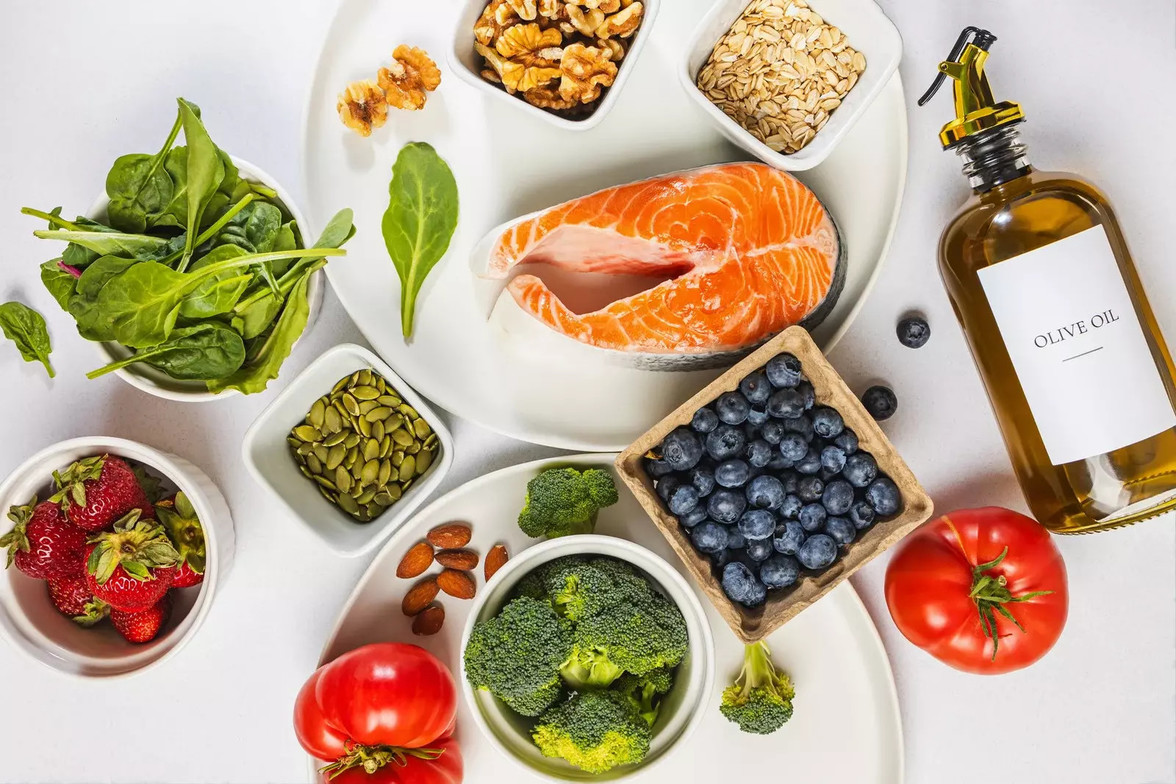
Anti-inflammatory Foods: What They Are and Why They Work
Chronic inflammation is the underlying cause of many modern health problems, including joint pain, digestive disorders, heart disease, diabetes, and even brain fog. While acute inflammation is a normal and essential part of the healing process, chronic inflammation can gradually harm tissues over time. The good news is that your diet can play a significant role in reducing inflammation.
In this post, we will explain inflammation, its effects on health, and which anti-inflammatory foods can naturally help reduce it.
What Is Inflammation—and When Does It Become a Problem?
Inflammation is a key part of your body's natural defense system. When you get injured or come into contact with pathogens, your immune system releases chemicals that cause localized swelling, heat, redness, and pain—these responses are designed to protect and promote healing. This immediate response is known as acute inflammation, a crucial step in the recovery process.
However, when inflammation becomes chronic, it can lead to significant health problems. Chronic inflammation is a low-grade and persistent condition that can lead to various health issues.
Chronic inflammation has been linked to:
- Joint and muscle pain
- Autoimmune disease
- Cardiovascular disease
- Alzheimer's and cognitive decline
- Obesity and insulin resistance
- Depression and mood disorders
- Skin conditions like eczema or acne
A diet high in pro-inflammatory foods, combined with factors such as stress, inadequate sleep, and a lack of physical activity, can contribute to various health issues.
What Makes a Food Anti-Inflammatory?
Anti-inflammatory foods help reduce the body's inflammatory response by:
- Providing antioxidants that neutralize free radicals
- Balancing omega-6 to omega-3 fatty acid ratios
- Supporting the gut microbiome
- Reducing blood sugar spikes
- Lowering oxidative stress and tissue damage
These foods are typically rich in phytonutrients, fiber, healthy fats, and vitamins—the building blocks of health and recovery.
Top Anti-Inflammatory Foods to Include in Your Diet
1. Fatty Fish
Salmon, mackerel, anchovies, sardines, and herring are rich in omega-3 fatty acids (EPA and DHA), which help lower levels of inflammatory markers like CRP (C-reactive protein).
Tip: Aim for 2-3 servings of wild-caught fatty fish per week
2. Berries
Blueberries, strawberries, raspberries, and blackberries are rich in anthocyanins, powerful antioxidants that protect tissues from oxidative stress.
Bonus: Berries are low-glycemic, so they won't spike blood sugar.
3. Leafy Greens
Spinach, kale, Swiss chard, and arugula contain vitamins A, C, and K, as well as polyphenols that combat inflammation at the cellular level.
Try: Mix a handful into smoothies or saute with olive oil.
4. Cruciferous Vegetables
Broccoli, cauliflower, Brussels sprouts, and cabbage contain sulforaphane, a compound that helps lower inflammatory cytokines and oxidative stress.
Preparation tip: Lightly steaming helps preserve nutrients while improving digestibility.
5. Olive Oil
Extra-virgin olive oil is high in oleocanthal, which has been shown to have similar effects to anti-inflammatory medications (such as ibuprofen).
Use it: As your primary cooking oil or in homemade salad dressings.
6. Nuts and Seeds
Almonds, walnuts, chia seeds, flaxseeds, and pumpkin seeds are rich in healthy fats, fiber, and minerals that reduce inflammation and support hormone balance.
Serving idea: Add a small handful to yogurt, oats, or salads for a nutritious boost.
7. Turmeric
Turmeric contains curcumin, a compound with potent anti-inflammatory and antioxidant properties. Curcumin has been studied for joint pain, metabolic syndrome, and depression.
Enhance absorption: Combine turmeric with black pepper (which contains piperine) for increased bioavailability.
8. Ginger
Ginger's bioactive compounds, like gingerol, can help reduce muscle soreness and lower systemic inflammation.
Add it to: Smoothies, tea, stir-fries, or soups.
9. Green Tea
Rich in catechins, such as EGCG, green tea has been shown to reduce inflammatory markers and support cardiovascular and metabolic health.
Bonus: It also supports brain health and fat metabolism.
10. Fermented Foods
Yogurt, kefir, sauerkraut, kimchi, and miso all promote a healthy gut microbiome, which is crucial for controlling inflammation.
Why it works: 70-80% of your immune system lives in your gut.
Foods That Promote Inflammation
Equally important is knowing which foods to limit or avoid, as they can fuel chronic inflammation:
- Refined carbohydrates (white bread, pastries, sugary cereals)
- Added sugars (sodas, candy, sweetened snacks)
- Fried foods (especially in seed oils, like canola, corn. or soybean oil)
- Processed meats (bacon, sausage, deli meats)
- Excess alcohol
- Trans-fats and hydrogenated oils
These foods increase oxidative stress, blood sugar spikes, and gut dysbiosis—hallmarks of an inflamed system.
The Gut-Inflammation Connection
The gut microbiome plays a central role in regulating inflammation. A healthy gut barrier prevents unwanted substances (like toxins or partially digested food) from entering the bloodstream.
When this barrier is compromised—commonly referred to as leaky gut—it can trigger immune activation and inflammation. Leaky gut refers to a condition in which the intestinal lining becomes more permeable than usual, allowing harmful substances to pass through and triggering an immune response.
Anti-inflammatory foods support gut health by:
- Feeding beneficial bacteria (fiber and prebiotics)
- Reducing harmful microbes (sugar-free environment)
- Promoting a healthy mucus layer and tight-junction integrity
Sample Anti-Inflammatory Day of Eating
Here's what a day of anti-inflammatory meals could look like:
Breakfast:
- Scrambled eggs with spinach and turmeric
- Berries with chia seeds and Greek yogurt
- Green tea
Lunch:
- Grilled salmon over a kale and quinoa salad with olive oil and vinaigrette
- Side of roasted Brussels sprouts
Snack:
- Apple slices with almond butter
- A few walnuts or flax crackers
Dinner:
- Stir-fry with broccoli, bell peppers, ginger, garlic, and chicken
- Brown rice or cauliflower rice
- Fermented vegetables (like kimchi or sauerkraut)
Supplements That Support an Anti-Inflammatory Lifestyle
While food is foundational, certain supplements may offer additional support:
- Fish oil (EPA/DHA): For systemic inflammation and joint health
- Curcumin: Especially in a bioavailable form (with peperine or liposomal delivery)
- Magnesium: Supports hundreds of anti-inflammatory cellular processes
- Probiotics: To support gut microbiome balance
- Vitamin D: Essential for immune modulation and inflammation control
Always consult a healthcare provider to personalize your supplement regime and ensure it aligns with your health needs and conditions.
Final Thoughts
Reducing inflammation does not require a complicated protocol. It involves making consistent and mindful choices that support your body's natural healing processes. An anti-inflammatory diet is a straightforward and practical approach to achieve this.
At Arthrology Chiropractic, we focus on root-cause health, encompassing not only proper movement and alignment but also nutrition, recovery, and informed lifestyle choices. Adopting an anti-inflammatory diet is one of the easiest and most effective ways to support long-term vitality.
By making gradual changes over time, you can significantly enhance your overall well-being, mobility, and functionality.

Edward Boudreau
Contact Me



.png)
